 "How to Raise a Kraken in Your Bathtub" by P. Djèlí Clark in Uncanny Magazine Issue 50, January-February 2023 by P. Djèlí Clark
"How to Raise a Kraken in Your Bathtub" by P. Djèlí Clark in Uncanny Magazine Issue 50, January-February 2023 by P. Djèlí Clark Format: ebook
Source: supplied by publisher via Hugo Packet
Formats available: magazine, ebook
Genres: historical fantasy, short stories, steampunk
Series: Uncanny Magazine Issue 50
Pages: 26
Published by Uncanny Magazine on January 3, 2023
Purchasing Info: Author's Website, Publisher's Website, Amazon, Barnes & Noble, Kobo
Goodreads
The January/February 2023 issue of Hugo Award-winning Uncanny Magazine .
Our landmark Issue 50, a double sized issue! Featuring new fiction by Ken Liu and Caroline M. Yoachim, Mary Robinette Kowal, P. Djèlí Clark, A. T. Greenblatt, A.M. Dellamonica, Eugenia Triantafyllou, Sarah Pinsker, E. Lily Yu, Marie Brennan, Christopher Caldwell, John Wiswell, and Maureen Mchugh. Essays by Elsa Sjunneson, John Picacio, Annalee Newitz, A.T. Greenblatt, Diana M. Pho, and Javier Grillo-Marxuach, poetry by Neil Gaiman, Terese Mason Pierre, Sonya Taaffe, Betsy Aoki, Theodora Goss, Ali Trota, Abu Bakr Sadiq, Elizabeth Bear, and Brandon O'Brien, interviews with Ken Liu and Caroline M. Yoachim by Tina Connolly; interviews with Eugenia Triantafyllou, E. Lily Yu, and Christopher Caldwell by Caroline M. Yoachim, a cover by Galen Dara, and editorials by Lynne M. Thomas and Michael Damian Thomas, and Meg Elison.
My Review:
The title of this story is the title of the manual that Trevor Hemley receives along with the rather expensive ‘Kraken egg’ that he’s purchased from an advertisement in the back of a magazine. Which all sounds utterly dodgy when you think about it for even half a second – but Trevor Hemley didn’t. Think, that is.
All Trevor thought about was the possibility of fame and fortune, of finally proving to his wealthy father-in-law that he was worthy of the hand of the man’s daughter – even though he already had that hand, along with a lovely home and a secure position all provided by his wife’s father.
Which of course made him feel all that more looked down upon by his wife’s family and their wealthy connections.
So a kraken. Or rather a plan to hatch said kraken in his bathtub, reveal the existence of the long-believed either mythical or extinct kraken to the world, and reap the rewards that Trevor felt were his due. After all, in Trevor’s Victorian Era, the Industrial Revolution was in full swing, fantastic discoveries were being made around the globe by Englishmen of science and daring, and the sun never set on an Empire that reaped the benefits of all the countries to which it believed it was bringing enlightenment while raping their economies and destroying their cultures.
But England is unassailable from without – as history has proven time and again. Which does not mean that it can’t be conquered – or that vengeance can’t be delivered upon it – from within. One crate and one bathtub at a time.
By a monstrous and rapacious creature – in fact a whole horde of them – with appetites as large as empires.
Escape Rating A-: The whole of this story is considerably greater than the sum of its parts, which is merely one part of what makes it so much fun and so thought provoking at the same time.
On the surface, it’s a bit of a funny story about a man whose reach has very definitely exceeded his grasp, as well as a bit of a morality tale about the parting of fools and their money, combined with the message that anything that sounds too good to be true generally is and that people generally get conned because they’ve conned themselves first.
But those messages were delivered in a thrashing of tentacles and teeth which Trevor Hemley certainly deserved. What gives the story its shiver of horror mixed with delicious righteousness is the way that Trevor is merely a part of the deliverance of those messages to a much wider and even more deserving ‘audience’.
Because it’s not really about the kraken after all. Even though it still is. And it’s the double-barrelling of the story, that it’s both the tongue-in-cheek tale of a man who does something really, really stupid and pays for it, AND it’s a story about colonialism where the colonizers get more than a few tentacles of their just desserts.
The title of this is marvelous, eye-catching and true in more ways than one – much like the story it represents. However, that title isn’t the only reason I picked this up yesterday – but it is one of the reasons that I picked it first out of the Hugo Packet for this year’s awards – which leads me straight into the other reasons I chose to read this story to round out a week that’s had a whole lot of ‘meh’ in it.
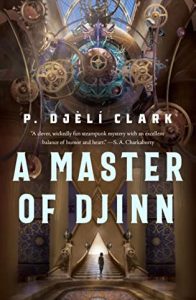 As a person with at least a Supporting Membership in this year’s World Science Fiction Convention, I have voting rights for the Hugo Awards. In order to be informed about exercising those rights, the Awards committee compiles a packet of ebook versions of as much of the nominated material as the publishers will give them. That packet became available this week and I immediately downloaded the lot.
As a person with at least a Supporting Membership in this year’s World Science Fiction Convention, I have voting rights for the Hugo Awards. In order to be informed about exercising those rights, the Awards committee compiles a packet of ebook versions of as much of the nominated material as the publishers will give them. That packet became available this week and I immediately downloaded the lot.
A lot that included this story by P. Djèlí Clark, whose previous work I have very much enjoyed, and in the case of the whole, entire Dead Djinn Universe (A Dead Djinn in Cairo, The Angel of Khan el-Khalili, The Haunting of Tram Car 015 and the utterly awesome A Master of Djinn) absolutely loved. While there are no djinn in this story, dead or alive, I was still up for some of his work because I knew it would be a gem whether or not it had received a Hugo nod.
All of which is to explain that many of the works that have received Hugo nominations (including another story from this very issue of Uncanny Magazine!) will appear in reviews here over the coming weeks. Based on the works that I have already read, plus this first foray into the nominated shorter works, it’s going to be an excellent year for the Hugos no matter which stories ultimately go home with rockets!

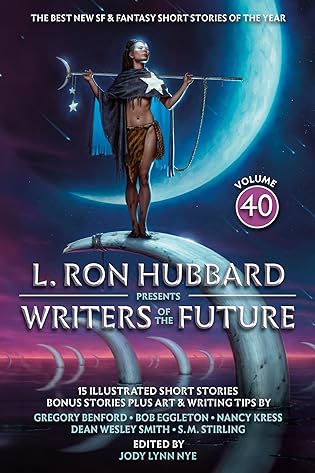 L. Ron Hubbard Presents: Writers of the Future, Volume 40 by
L. Ron Hubbard Presents: Writers of the Future, Volume 40 by 
 Lovers at the Museum by
Lovers at the Museum by  The
The 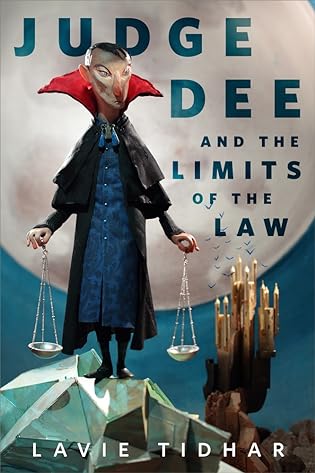 Judge Dee and the Limits of the Law (Judge Dee, #1) by
Judge Dee and the Limits of the Law (Judge Dee, #1) by 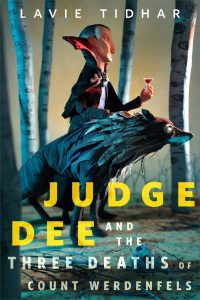 What makes the story fun – more than fun enough that I’ll be picking up the next story the next time I need something short to tide me over an overcommitted calendar – is the first person perspective of poor, put upon, Jonathan. He’s snarky, he’s both world-weary and vampire-weary, but he’s always aware of the side on which his bread is buttered – when he can get any, that is. So his commentary covers the Judge, the law he administers, his opinions and predilections, but also the companionship they provide each other.
What makes the story fun – more than fun enough that I’ll be picking up the next story the next time I need something short to tide me over an overcommitted calendar – is the first person perspective of poor, put upon, Jonathan. He’s snarky, he’s both world-weary and vampire-weary, but he’s always aware of the side on which his bread is buttered – when he can get any, that is. So his commentary covers the Judge, the law he administers, his opinions and predilections, but also the companionship they provide each other.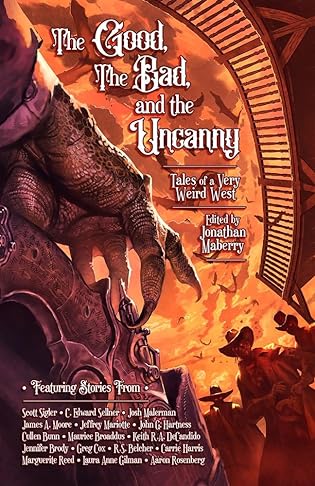 The Good, The Bad, & The Uncanny: Tales of a Very Weird West by
The Good, The Bad, & The Uncanny: Tales of a Very Weird West by 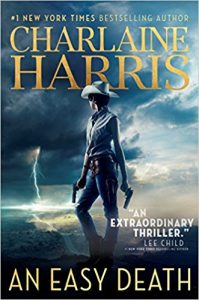 So, if you have that same fondness for Westerns – especially those that touched on, or were touched by, or dipped their whole entire six-shooters into the very, very weird, or if you’re a fan of more recently published ‘Weird West’ inspired stories such as Charlaine Harris’
So, if you have that same fondness for Westerns – especially those that touched on, or were touched by, or dipped their whole entire six-shooters into the very, very weird, or if you’re a fan of more recently published ‘Weird West’ inspired stories such as Charlaine Harris’ 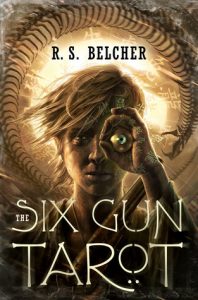 “Devil’s Snare” (Golgotha #1.5) by R.S. Belcher
“Devil’s Snare” (Golgotha #1.5) by R.S. Belcher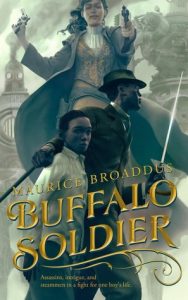 “Desert Justice” by Maurice Broaddus
“Desert Justice” by Maurice Broaddus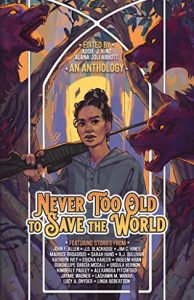 Escape Rating B: I had to do math to get to an overall rating, just as I did for the review of a previous collection by this publisher,
Escape Rating B: I had to do math to get to an overall rating, just as I did for the review of a previous collection by this publisher, 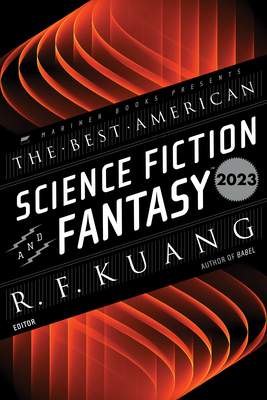 The Best American Science Fiction and Fantasy 2023 by
The Best American Science Fiction and Fantasy 2023 by 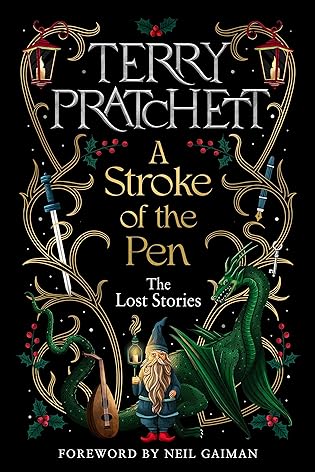 A Stroke of the Pen: The Lost Stories by
A Stroke of the Pen: The Lost Stories by 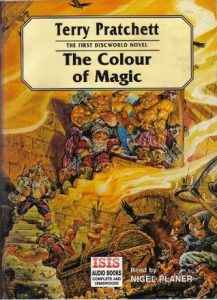 Two of those available titles were
Two of those available titles were 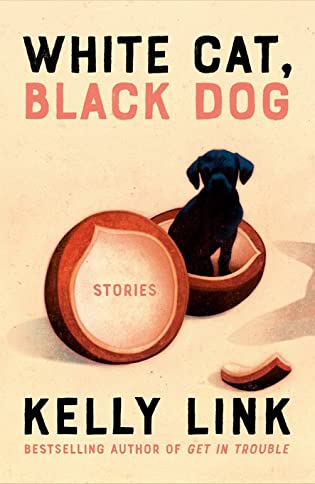 White Cat, Black Dog: Stories by
White Cat, Black Dog: Stories by 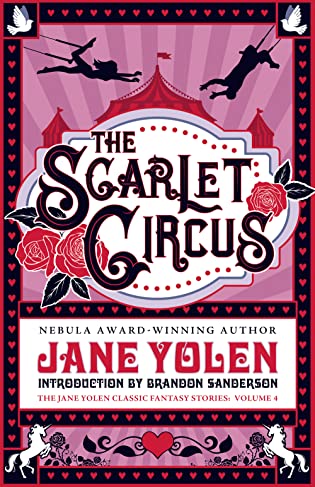 The Scarlet Circus by
The Scarlet Circus by 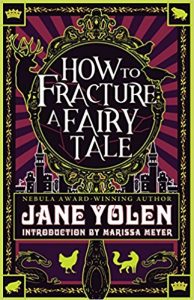 This ended up being my Valentine’s Day review because, to paraphrase the author’s forward just a bit, while the stories contained within are not “Romances” with a capital R, each story does contain a romantic element – even if that element is not the center of the story and seldom results in anything like a happy ever after.
This ended up being my Valentine’s Day review because, to paraphrase the author’s forward just a bit, while the stories contained within are not “Romances” with a capital R, each story does contain a romantic element – even if that element is not the center of the story and seldom results in anything like a happy ever after.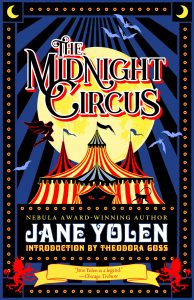 Those initial stories were interesting and fun but didn’t quite touch my heart – although “Dusty Loves” certainly tickled my funny bone a bit. These next ones, however, got a bit closer to the heart of the matter – or at least my heart.
Those initial stories were interesting and fun but didn’t quite touch my heart – although “Dusty Loves” certainly tickled my funny bone a bit. These next ones, however, got a bit closer to the heart of the matter – or at least my heart.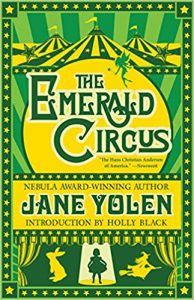 Escape Rating A-: Like most collections, the stories are a bit all over the map. I adored a couple, liked quite a few more, and a small number just missed the mark for me in one way or another – as the above descriptions show. But overall I’m very glad I picked this up, and enjoyed the ways that it played with romances of many types and stripes and definitions. That “love is all there is is all we know of love” doesn’t have to mean that all loves are exactly the same type.
Escape Rating A-: Like most collections, the stories are a bit all over the map. I adored a couple, liked quite a few more, and a small number just missed the mark for me in one way or another – as the above descriptions show. But overall I’m very glad I picked this up, and enjoyed the ways that it played with romances of many types and stripes and definitions. That “love is all there is is all we know of love” doesn’t have to mean that all loves are exactly the same type.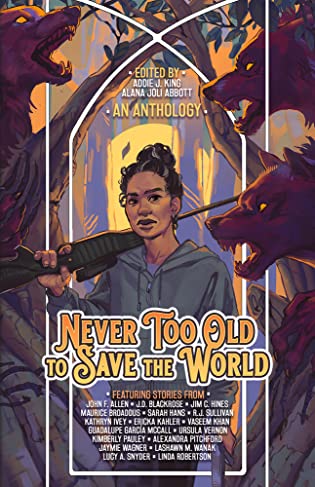 Never Too Old to Save the World: A Midlife Calling Anthology by
Never Too Old to Save the World: A Midlife Calling Anthology by 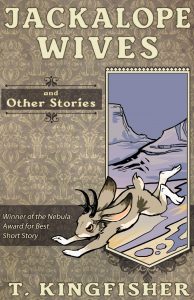 My favorite fantasy story is “Jackalope Wives” by Ursula Vernon – who also writes marvelously fantastic fantasy and horror as T. Kingfisher. “Jackalope Wives” is the only story in the book that has been previously published, originally in
My favorite fantasy story is “Jackalope Wives” by Ursula Vernon – who also writes marvelously fantastic fantasy and horror as T. Kingfisher. “Jackalope Wives” is the only story in the book that has been previously published, originally in